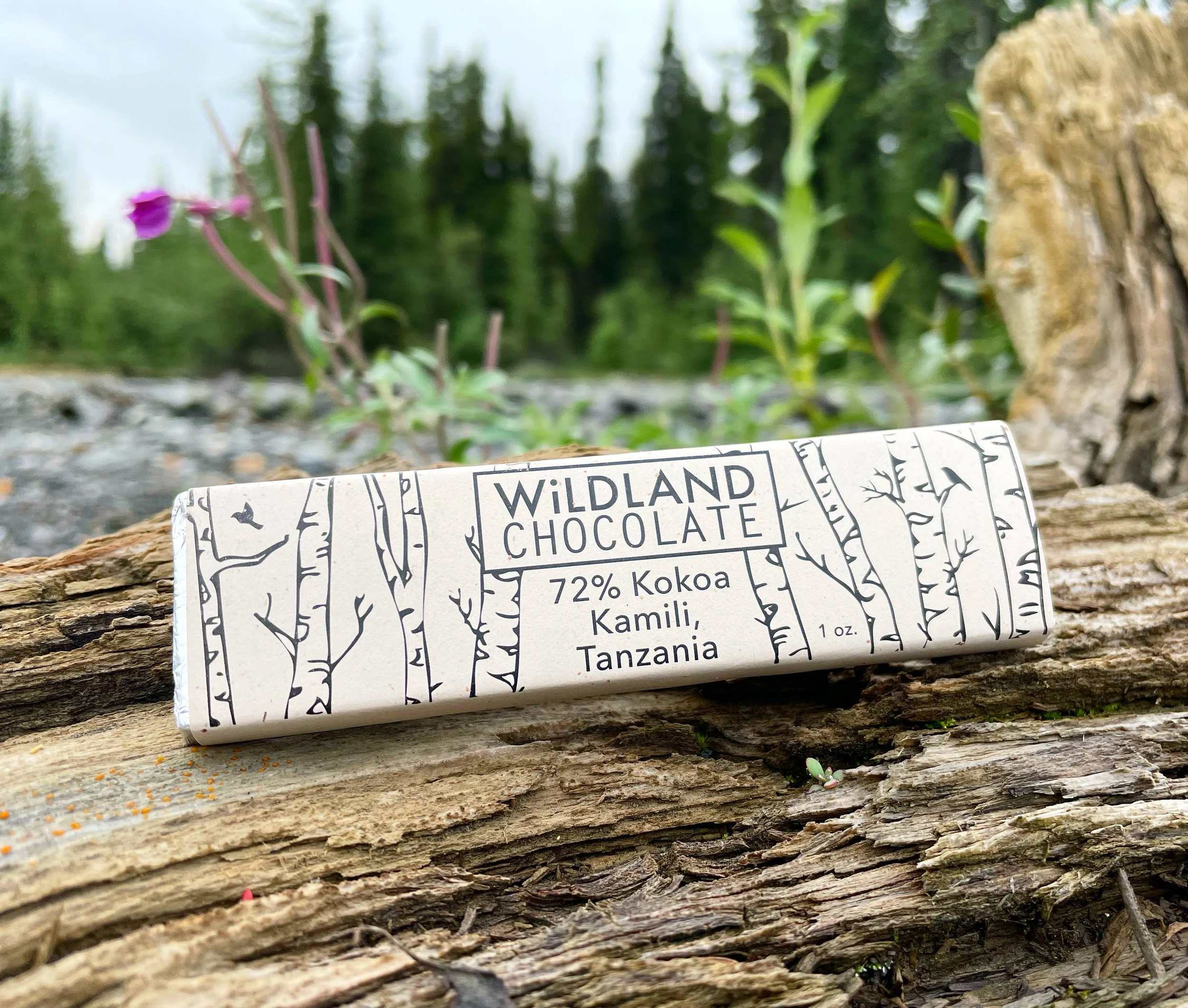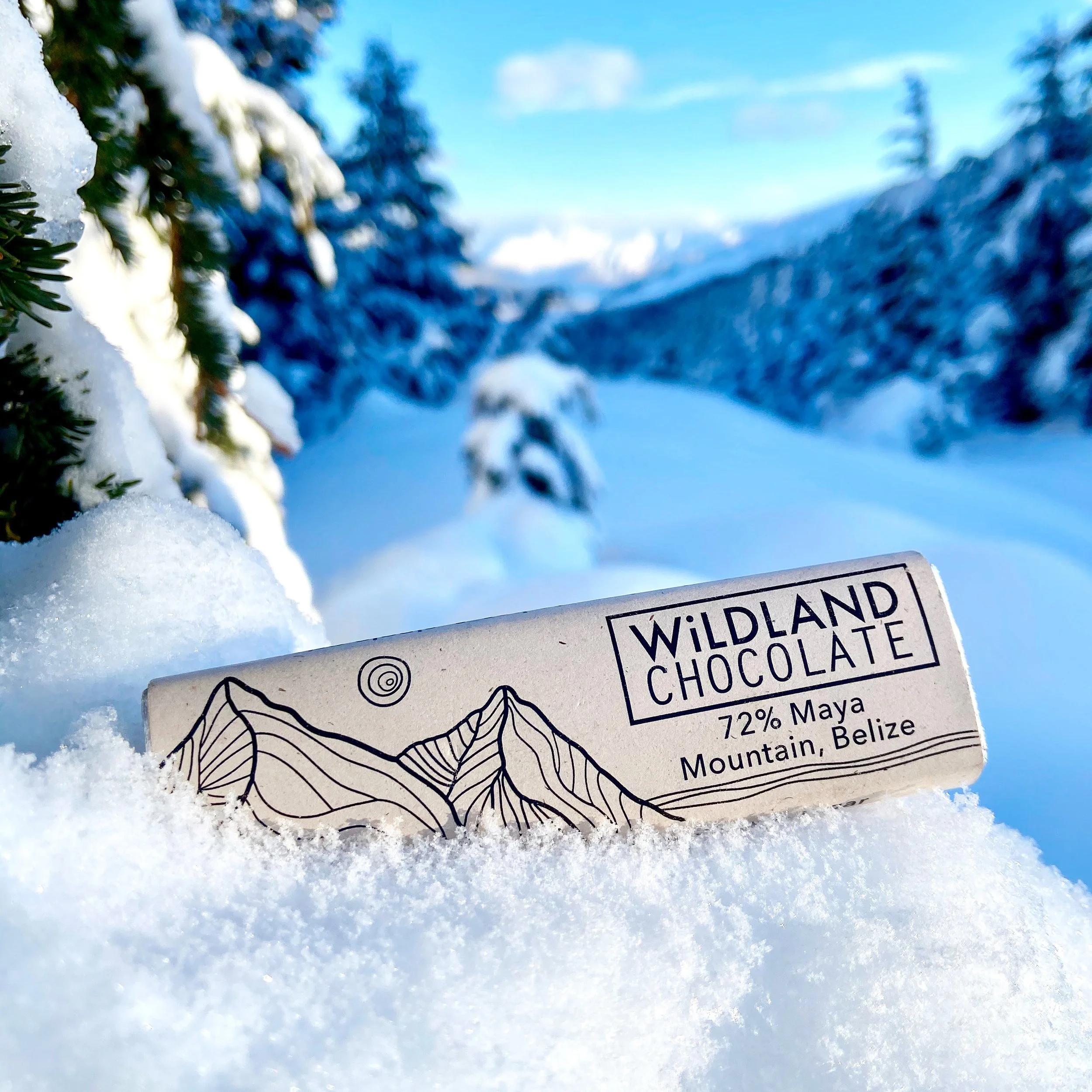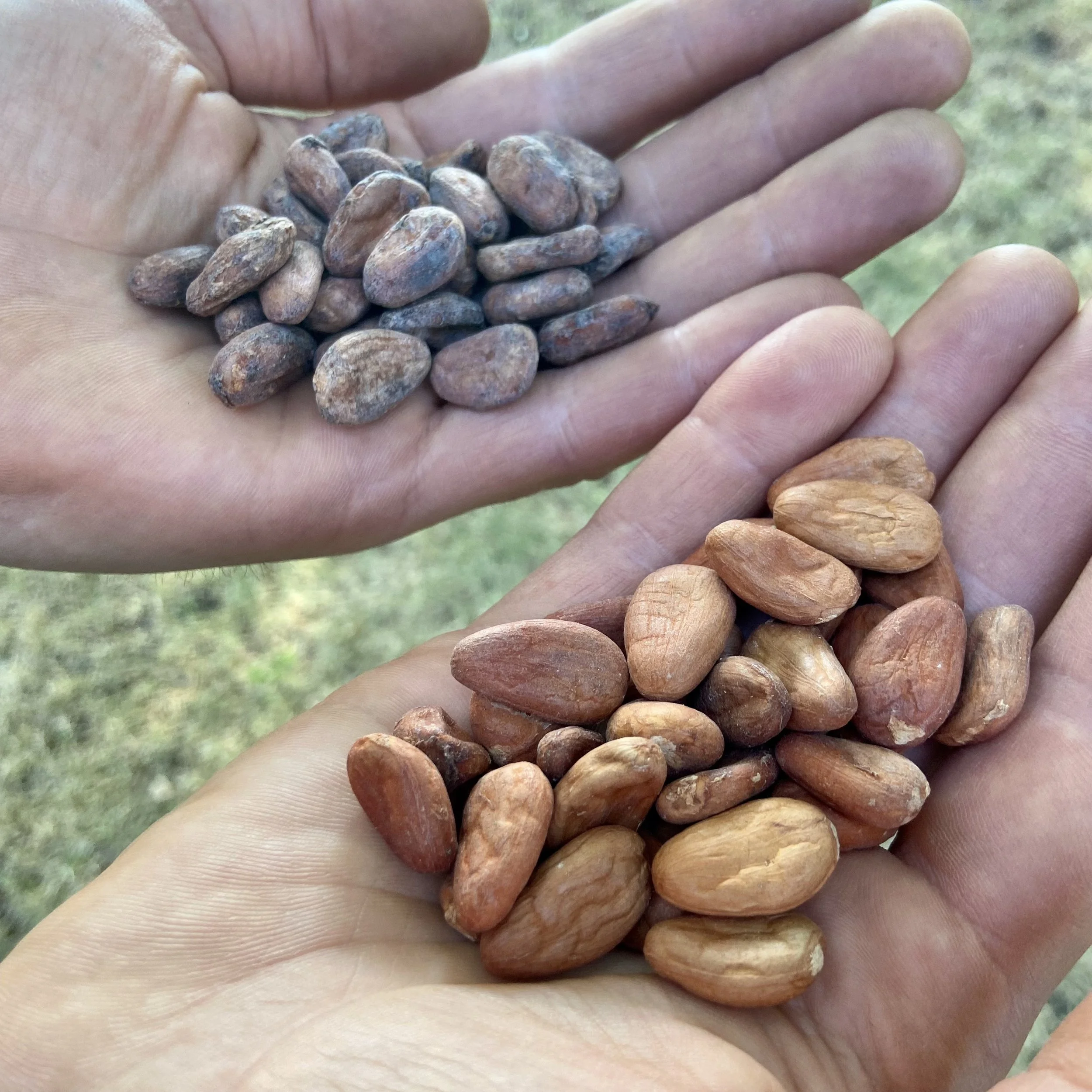Our Chocolate Origins
We source our cocoa beans either directly with the farms or producers or through like-minded partners who support transparent trade, fair prices for farmers and producers, and sustainable agriculture and communities. The origins we have selected highlight the rainbow of amazing flavors possible in cocoa beans, which vary tremendously based on where the cocoa beans are grown, the genetics of the cacao trees, how they are processed at origin, and then how we roast and make the chocolate. Scroll down to learn more about the farms, cooperatives, and producers we source our cacao from.
Dark Chocolate
Costa Esmeraldas, Ecuador
Tasting Notes: malted milk, apricot
The latest harvest of Costa Esmeraldas bar is deeply chocolatey with notes of malted milk balls and light, fruity apricot tang. We source the Costa Esmeraldas cocoa beans from a family-owned and operated, 250-acre cocoa farm in the Esmeraldas province of Ecuador. The farm ferments their beans in 450 kilogram wood boxes for 5 days and then sun dries them on mesh racks. They are then aged for two months in breathable jute bags. The beans are made up entirely of a local variety of cacao grown in Ecuador known as Nacional.
Soconusco, Chiapas, Mexico
Tasting Notes: Molasses, dates
These cocoa beans come from a cooperative made up of 27 members farming 50 hectares of cacao trees interspersed with other fruits like mamey, coconut, lemons, and timber yielding trees that help shade the cacao. The cooperative is focused on preserving the incredible genetic diversity of the heirloom cacao on their farms.
Semuliki Forest, Uganda
Organic • Tasting Notes: banana bread, rum
Latitude Trade Co., which processes and exports this cacao, works with more than 1,000 organic farmers in Bundibugyo, Western Uganda - more than half of whom are women. They pay cash at the point of sale at above-market rates and do purchase agreements in advance with farmers. This gives farmers more certainty and stability, and has allowed farmers to invest in and expand their farms even more. They also make chocolate at origin, building even more value and jobs in the community.
Kokoa Kamili, Tanzania
Organic • Tasting Notes: concord grapes
Bright Concord grape flavors shine in this cocoa bean from the Kilombero Valley area of the Morogoro Region in Tanzania. Like many other cocoa bean farmers, Tanzanian farmers sell their cocoa beans to a central fermentary. The Kokoa Kamili Fermentery is the collection point for approximately 2,000 small farmers who are paid above the market rate for their cocoa beans. Cocoa beans from the Kilombero Valley are all organic, as farmers have not had access to pesticides, inorganic fertilizers, or other chemicals. Even with today’s technology, local farmers continue to practice organic farming. Most of the cocoa beans are Trinitario with small batches of Ancient Criollo and Nacional.
Maya Mountain, Belize
Organic • Tasting Notes: Orange Blossom, peach
The current harvest year has a subtle sweetness with floral and light fruit notes. In 2017, Maya Mountain cocoa beans oozed bright fruits that left us wondering how chocolate could taste like a Jolly Rancher. The later varieties we’ve worked with have been much softer with a light fruitiness and natural sweetness. The beans come from Maya Mountain Cacao, a central fermentary in Belize that buys cacao and works with several hundred small farmers across a large part of southern Belize. These beans are certified USDA organic.
Milk Chocolate
We make our dairy-free milk chocolate with ethically sourced cocoa beans, house-pressed cocoa butter, organic gluten free coconut, and organic cane sugar.
Cahabón, Guatemala - 60% Dark Coconut Milk Bar
We make our 60% dark coconut milk bar with beans from Cahabón, Guatemala, which are known for their monstrous size. Most cocoa beans are average 100 beans per 100 grams, but these often hit 50 beans per 100 grams! We love these beans for their deep chocolatey flavor, with just a hint of orange -- the perfect pairing for our chocolatey coconut milk bar. These beans come from a cooperative run by Indigenous Mayan farmers. Located on a mountaintop overlooking the hills of the Cahabón region, the cooperative ferments its cacao communally using cascading fermentation boxes and a mix of drying decks.







